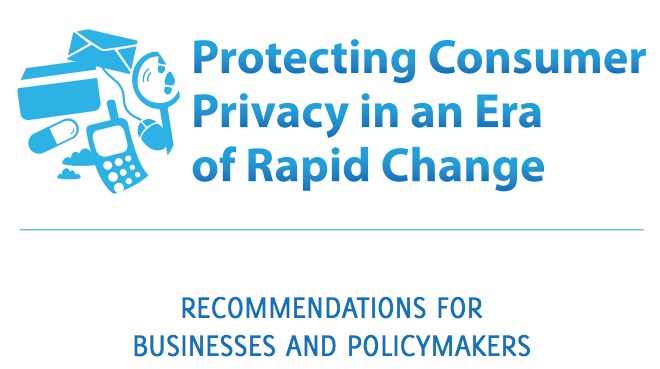The Federal Trade Commission just released a new report laying out its current thinking on Internet privacy. In some cases, the commission recommends new legislation, while in others it just want to hold more workshops.
The FTC previously released a “privacy framework” in December 2010. The framework outlined three principles that the commission wants companies to follow, including “privacy by design” (which means thinking about privacy at every stage of product development), simplified consumer choice, and greater transparency. It made perhaps its biggest splash by endorsing a “Do Not Track” mechanism in Web browsers. The FTC didn’t invent the idea, but DNT has gained more momentum since it made the endorsement.
In the new report (view or download the PDF here), the FTC includes five main action items:
- Do Not Track — The report notes that “significant progress” has been made in making Do Not Track a reality. “However, the work is not done.” The FTC says it will work with organizations including browser vendors, the Digital Advertising Alliance, and The World Wide Web Consortium “to complete implementation of an easy-to use, persistent, and effective” system.
- Mobile — The FTC wants mobile companies to provide “short, meaningful disclosures”, and it will host a workshop on May 30 in the hopes of that it “will spur further industry self-regulation.”
- Data Brokers — The FTC supports legislation that would give consumers access to the information that data brokers hold about them. It also calls for those brokers to “explore creating a centralized website” showing who is collecting what data.
- Large Platform Providers — The FTC report says that as Internet Service Providers, operating systems, Web browsers, and social media services try to “comprehensively track consumers’ online activities,” they raise “heightened privacy concerns,” and the commission plans to hold a workshop later this year to look at the issue. For now, it seems like the commission is least concerned about the final category. The report says that even though “companies such as Google and
Facebook are expanding their reach rapidly, they currently are not so widespread that they could track a consumer’s every movement across the Internet,” so they don’t raise “the same level of privacy concerns.” - Promoting Enforceable Self-Regulatory Codes — The FTC says it will participate in the Department of Commerce’s efforts to build sector-specific codes of conduct, and that if those codes are developed, the commission will “view adherence to such codes favorably in connection with its law enforcement work.”
